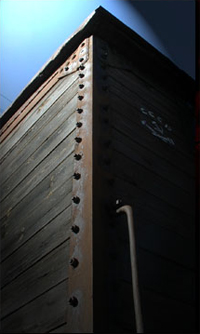The collections of the National Oral History Project (NMV) contain two and a half thousand peoples narratives about their lives. Every other one of the people tells of repressions that barged in and interrupted his/her everyday life or the lives of his/her loved ones. For a small nation, that is a disproportionately high number.
Audio recordings of life stories have been collected since the late 1980s, when people no longer feared punishment for telling the truth and dared to tell what they had really experienced. The burden of truth was heavy and the telling was not easy horror, cruelty and shame often interfered and blocked the flow of memory. Phrases and images from folklore and literature were sometimes used to relate what everyday words were unable to describe. The narratives did not always flow smoothly words and sentences were broken off, pauses and silences peppered the stories. But rather than diminish it, these disturbances enhance the authenticity of the life story as a historical source. Interviews have been conducted in all regions of Latvia, in rural areas as well as in towns and cities.
The National Oral History Project collections serve as sources for research by the Institute of Philosophy and Sociology at the University of Latvia. Just as there as no two people alike, neither are their life stories alike. Each in its own way, the three audio interviews provided here reflect how deportation resounds in a persons perception of the world, his/her emotional experience and the memory of those people who never returned from deportation. Each story reflects an individual:
Alma Dreimane and Hilda Zemzare are both from the countryside Alma from the Tukums area, Hilda from Sēlpils. The frugal years after the founding of the Republic of Latvia coloured their perception of the world, and had it not been for the deportations, both would have tended respectable farmsteads, putting to good use the skills and knowledge they inherited from their parents and learned in school. Valērija Sieceniece was one of the first members of the Latvian Association of Academically Educated Women (LAISA) and actively participated in the associations renewal in the early 1990s. The many difficulties she experienced did not break her artistic spirit, wits or resourcefulness working from a one-room apartment, she lived a very intense and spiritually full life.
Numbers represent only masses with no individual faces. Memories address personal voices and ascribe specific traits to people. Without these characteristics it is impossible to evaluate the consequences of the damage and the meaning of all the tragic events as a whole.
Māra Zirnīte
Coordinator of the National Oral History Project
at the Institute of Philosophy and Sociology
of the University of Latvia

